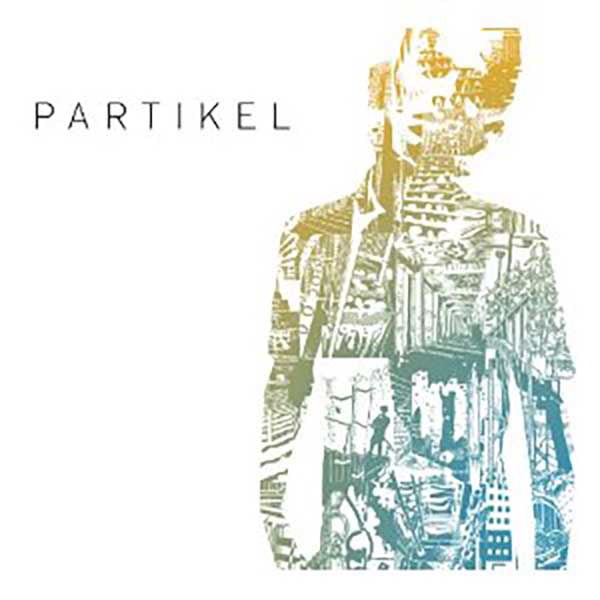
by Ian Mann
December 03, 2010
/ ALBUM
A refreshing, innately tuneful and highly distinctive take on the art of the saxophone trio.
Partikel
“Partikel”
(F-ire Presents F-IRE CD 42)
This latest release on the F-ire Presents imprint introduces Partikel, a trio led by the young saxophonist and composer Duncan Eagles. He is joined by the similarly youthful Max Luthert on double bass and Eric Ford at the drums. Individually all three are beginning to make a name on the UK jazz scene and they have accompanied many famous names as well as receiving tuition from experienced campaigners such as saxophonists Russell Van Den Berg and Mornington Lockett and bassist Steve Watts.
The trio have honed their skills on the regular Monday night jams they host at The Hideaway in Streatham and this album represents an assured and confident recording début. Choosing to record in the classic “saxophone trio” format pioneered by Sonny Rollins and others is a bold move but Eagles and his colleagues bring a pleasantly contemporary and highly melodic edge to their music and on the whole the album succeeds well.
Comprised entirely of Eagles originals the album opens with a brief improvised snapshot entitled “Intro (Soundcheck)”. The serious stuff starts with “Oojimaflip” which mixes melodic, sometimes forceful tenor sax with supple, powerful double bass and colourful, brightly detailed drums. Indeed Ford is a busy, consistently inventive player but his innate good taste ensures that he never imposes but always adds.
“Meadow View” has a more pastoral air, Eagles’ long melodic lines are sometimes reminiscent of the post Loose Tubes school of British Jazz. It’s perhaps not entirely co-incidental that he once studied with former Tubes saxophonist Mark Lockheart. However there’s more to the track than mere whimsy as Luthert’s wonderfully dexterous bass solo and Ford’s powerful drum feature attest.
“Cryptography” is more attuned to American models with Eagles’ tenor probing at length above a characteristically busy and colourful backdrop of bass and drums. However the trio never lose their melodic focus on a piece that sees them updating Sonny Rollins for a contemporary British audience.
Eagles switches to soprano for the more impressionistic “The River”, a piece which also offers some exquisite bass and drum moments. Indeed Luthert’s rounded tones open the long lined “Conquistador” with Eagles back on tenor and with Ford revealing a delicate touch with the brushes. As the piece develops all three play with greater power and urgency as the music grows starker and more dramatic.
The lively “D To The G” unveils some of the world music and hip hop influences mentioned in the group’s press release. Ford lived in France for some time where he absorbed various influences ranging from Algeria to the Caribbean. There’s an effervescent feature for the drummer on a number that’s almost certain to be something of a live favourite.
Ford is also prominent on “The Steep And Thorny Way”, one of the album’s stand out cuts and a testament to Eagles’ growing maturity as a writer.
“Partikel” itself, effectively the title track, has something of the loose limbed melodicism of Seb Rochford’s Polar Bear and includes more brilliant drumming from Ford plus a lengthy feature for Luthert’s unaccompanied bass.
After a broodingly atmospheric intro “Grandfather Clock” takes things storming out with some of the most powerful playing on the album, the contrasting dynamics making for another highly effective live set piece I would think. “Outro” mirrors the opening “Intro” and bookends the album with a brief coda.
This album represents a remarkably mature début. The music is focussed and highly melodic throughout with Eagles contributing some memorable themes. As a result Partikel’s music is readily accessible and devoid of the bluster that can sometimes occur in this format. Eagles is in fine form throughout, his playing a good balance between the exploratory and the melodic and lyrical. Luthert’s bass work is supple and dexterous and Ford’s drumming consistently bright and intelligent. Although Eagles is the nominal leader and inevitably the focus of the group this is still a consummate trio performance with a high level of interaction between the players. It’s a refreshing, innately tuneful and highly distinctive take on the art of the saxophone trio.
Besides the high standard of the writing and musicianship the success of the album is also aided by other forces. The music was recorded at Derek Nash’s Clown’s Pocket Studio and his musician’s ear and acclaimed engineering skills (together with Tyler McDiarmid) really bring out the best in the group. Not only does he capture fellow saxophonist Eagles brilliantly but he also brings out the full detail of the rhythm team’s superlative contribution.
A word too for Alban Lowe whose distinctive artwork graces the album and gives the group a striking visual image. Examples of his similarly distinctive animated work can be found on the band website http://www.partikel.co.uk
Following the release of this album there already seems to be a bit of a buzz about Partikel and the trio are already booked to appear at the 2011 Brecon Jazz Festival.
blog comments powered by Disqus